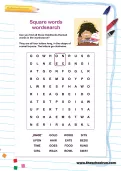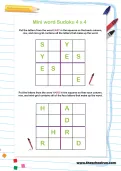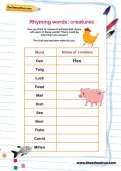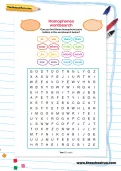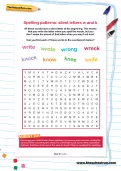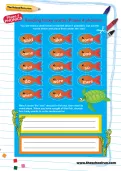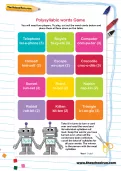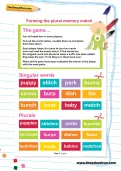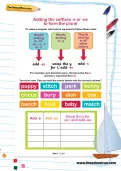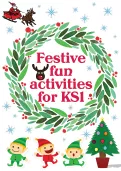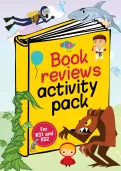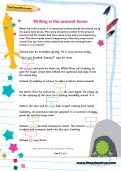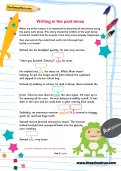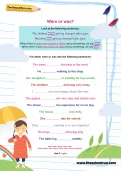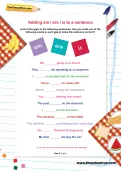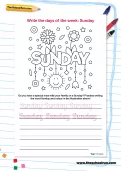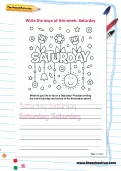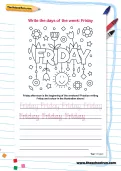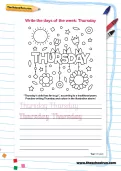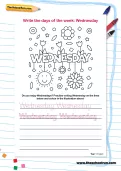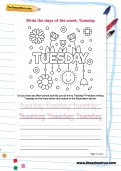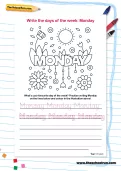Cut out the words below and place them under the “sea”. Now it's time to go fishing!
or
Register to add to your saved resources
Already a subscriber? to view this content.
Cut out the words and place them face down on a table. Working with a grown-up, take it in turns to turn a word over and read the word out. Can you say a sentence that contains the word?
or
Register to add to your saved resources
Already a subscriber? to view this content.
Cut out these words and place them under the “sea”. Next, reach under the “sea” and pull a fish out, then read its word aloud. Can you catch all the fish?
or
Register to add to your saved resources
To play, cut out the word cards and place them all face down on the table. Take it in turns to turn a card over and read the word and its individual syllables out loud. Keep the words you have turned over; when all the cards have been collected, count the total of syllables for all your words. The winner
is the person with the most syllables.
or
Register to add to your saved resources
Already a subscriber? to view this content.
Usually the way we read ‘g’ depends on the letter that follows it (there are exceptions). Learn the rule then see if you can sort these words into the table.
or
Register to add to your saved resources
Already a subscriber? to view this content.
Cut out the words below, muddle them up and place them face down. Each player takes it in turns to turn two cards over and read the words aloud. If the words are the singular word and its plural when a suffix has been added they keep the pair; if not they turn them back over. When all the pairs have been collected the winner is the player with the most pairs.
or
Register to add to your saved resources
Can you sort these singular words into the correct column to show how you'd form the plural?
or
Register to add to your saved resources
Already a subscriber? to view this content.
Write letters to Santa, help the elves by counting presents, build a Christmas model village and more with our collection of festive learning activities for children in Year 1 and Year 2. Guaranteed to keep kids engaged with learning in the run-up to the celebrations!
or
Register to add to your saved resources
Already a subscriber? to view this content.
Help your child explore books and language with TheSchoolRun's Book reviews activity pack, a huge collection of reading comprehension and creative writing resources for Year 1 to Year 6.
or
Register to add to your saved resources
Already a subscriber? to view this content.
This story should be written in the present tense to tell the reader that the events in the story are happening now. Can you look at the underlined verbs and change them to the present tense?
or
Register to add to your saved resources
Already a subscriber? to view this content.
When we write a story, it is important to describe all the events using the same verb tense. This story should be written in the past tense to tell the reader that the events in the story have already happened. Can you look at the underlined verbs and change them to the past tense?
or
Register to add to your saved resources
When there is more than person or thing doing something, we say were. When there is just one person or thing doing something, we say was. Can you put either were or was into the following sentences?
or
Register to add to your saved resources
Look at the gaps in the following sentences. Can you write one of the following words in each gap to make the sentence correct?
or
Register to add to your saved resources
Already a subscriber? to view this content.
Help your child practise writing the days of the week with our handwriting worksheets; focus on Sunday.
or
Register to add to your saved resources
Help your child practise writing the days of the week with our handwriting worksheets; focus on Saturday.
or
Register to add to your saved resources
Help your child practise writing the days of the week with our handwriting worksheets; focus on Friday.
or
Register to add to your saved resources
Help your child practise writing the days of the week with our handwriting worksheets; focus on Thursday.
or
Register to add to your saved resources
Help your child practise writing the days of the week with our handwriting worksheets; focus on Wednesday.
or
Register to add to your saved resources
Help your child practise writing the days of the week with our handwriting worksheets; focus on Tuesday.
or
Register to add to your saved resources
Help your child practise writing the days of the week with our handwriting worksheets; focus on Monday.
or
Register to add to your saved resources
